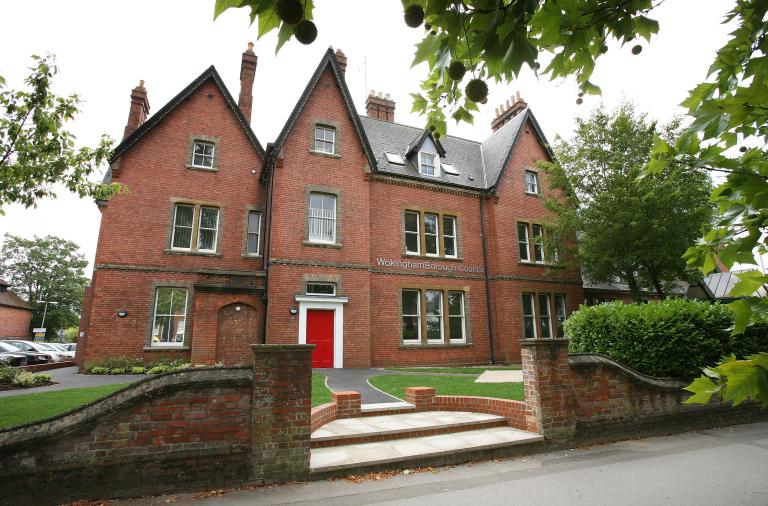Published on
29 September 2023
Preferred future headquarter accommodation agreed by decision-making executive
The council has agreed to review its office accommodation including opportunities to relocate its headquarters at Shute End

At its meeting last night, Wokingham Borough Council’s decision-making executive agreed to review its office accommodation including the opportunities to relocate its headquarters at Shute End to a more appropriately sized and more energy efficient building.
Like many other organisations and businesses across the country, the way in which the council works changed during the Covid-19 pandemic, and this has continued since then.
Shute End no longer meets our needs
The Shute End office is now too big for the council’s needs and the running costs are very high – around £1.1million per year. Not only that, Shute End is not energy efficient. By 2030, there is a legal requirement to have an Energy Performance Certificate (EPC) rating of B. Shute End is currently rated at EPC D and it would cost more than £1million to bring it up to standard.
As a responsible authority, the borough council has to look at its own resources and seek to reduce its costs where it can to help protect vital services.
Proposed new Headquarters
The council has explored a number of possible locations for a new headquarters taking into consideration criteria such as location, sites it owns, availability as well as making sure the building is an appropriate size for its workforce and energy efficient.
And at its meeting, the executive agreed that 28 to 38 Peach Street in Wokingham (the former Marks & Spencer building) is the preferred alternative headquarters location and approved for more detailed feasibility and planning work to take place.
The outcome of this work will be reported back to the Executive next year (2024). This is a long-term project which would be subject to planning permission and the council doesn’t envisage moving into its new headquarters until early 2027.
Given the criteria set out above, especially relating to size and capacity, the options for an alternative headquarters were all identified within Wokingham town. However, further work to consider opportunities for leasing other suitable properties outside of Wokingham town will be carried out and compared with the current preferred option.
The council is also looking at community hubs, with greater flexibility and the opportunity to work more collaboratively with partners and the wider community.
Facing unprecedented challenges
Cllr Stephen Conway, leader of the council, said: “We’re facing unprecedented financial challenges and we are having to make difficult decisions about many of our services to help reduce costs and prioritise funding to support those most in need. Therefore, it is only right and proper that we look at the buildings we own and see where we can make efficiencies. Since the pandemic our working practices have changed.
“Our Civic Offices at Shute End have become far too expensive to run given the current circumstances. Thanks to modern flexible working practices, especially working part of the week from home or other locations, a building of this size is no longer needed. There are environmental benefits too as Shute End is not energy efficient and to bring it up to the legal requirement by 2030 would require a significant investment – money we simply don’t have.
“We can, therefore, save the council taxpayer money by moving to smaller accommodation that is cheaper to run and more energy efficient. This is a positive move.”
